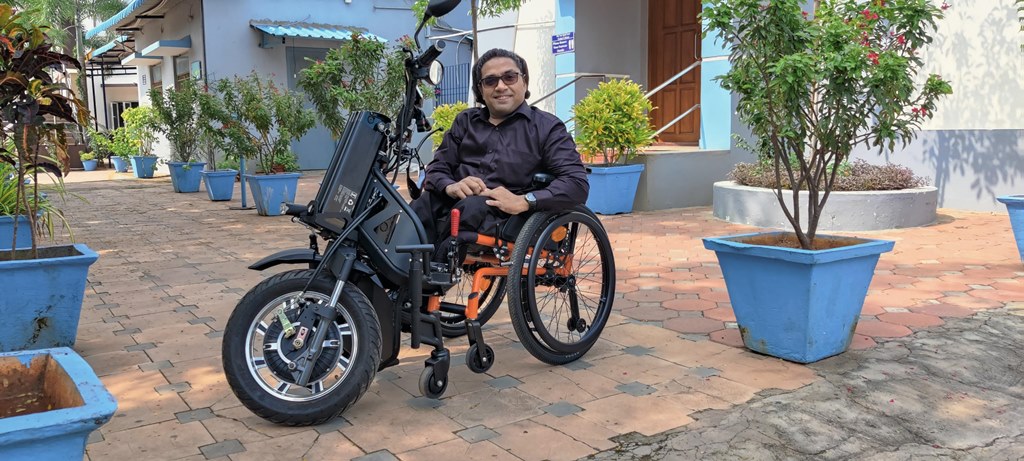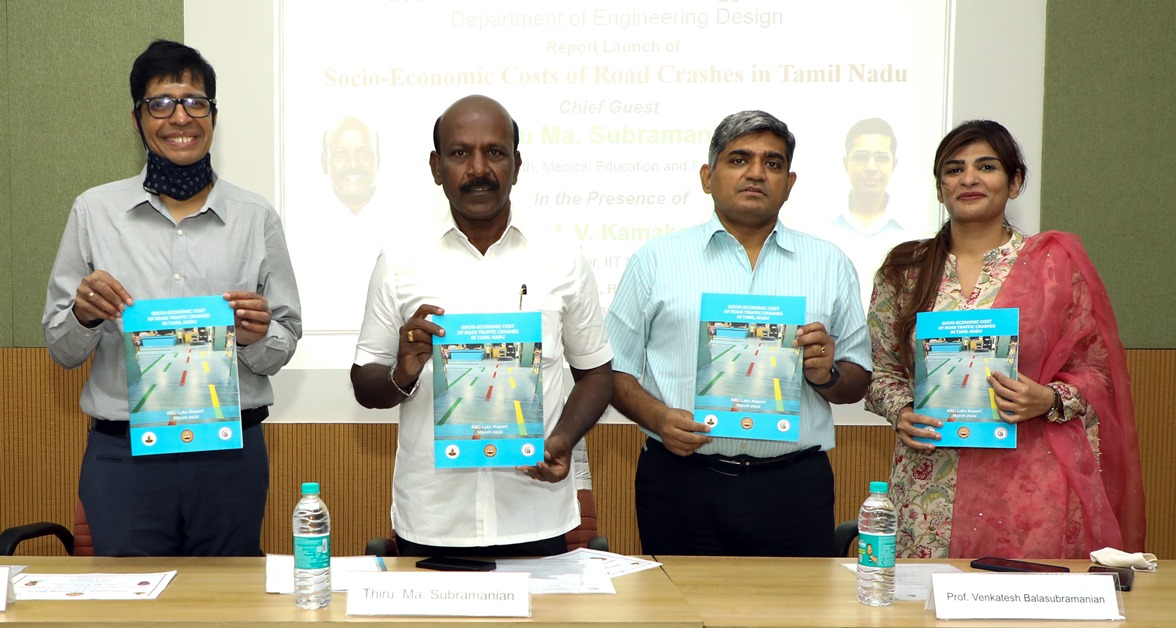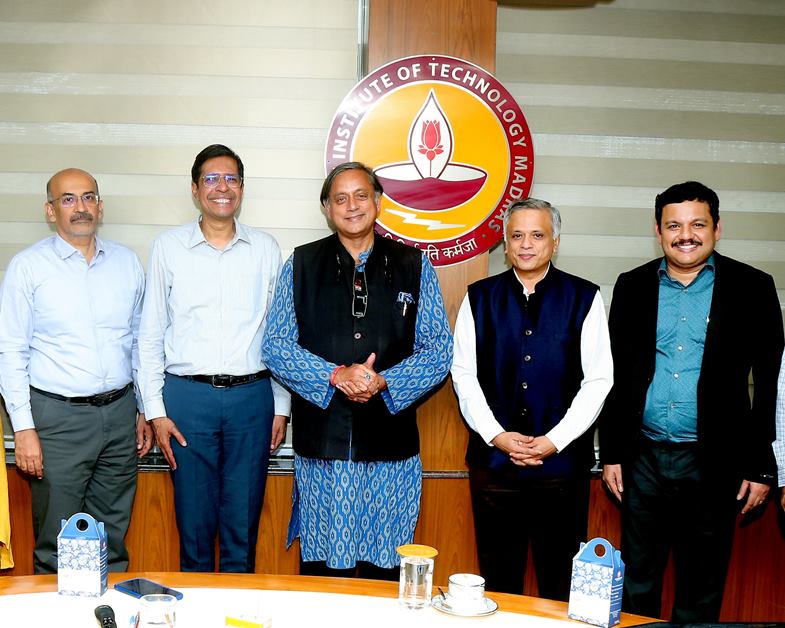Through ‘Device Engineering Labs’
 KRC TIMES Education Desk
KRC TIMES Education Desk
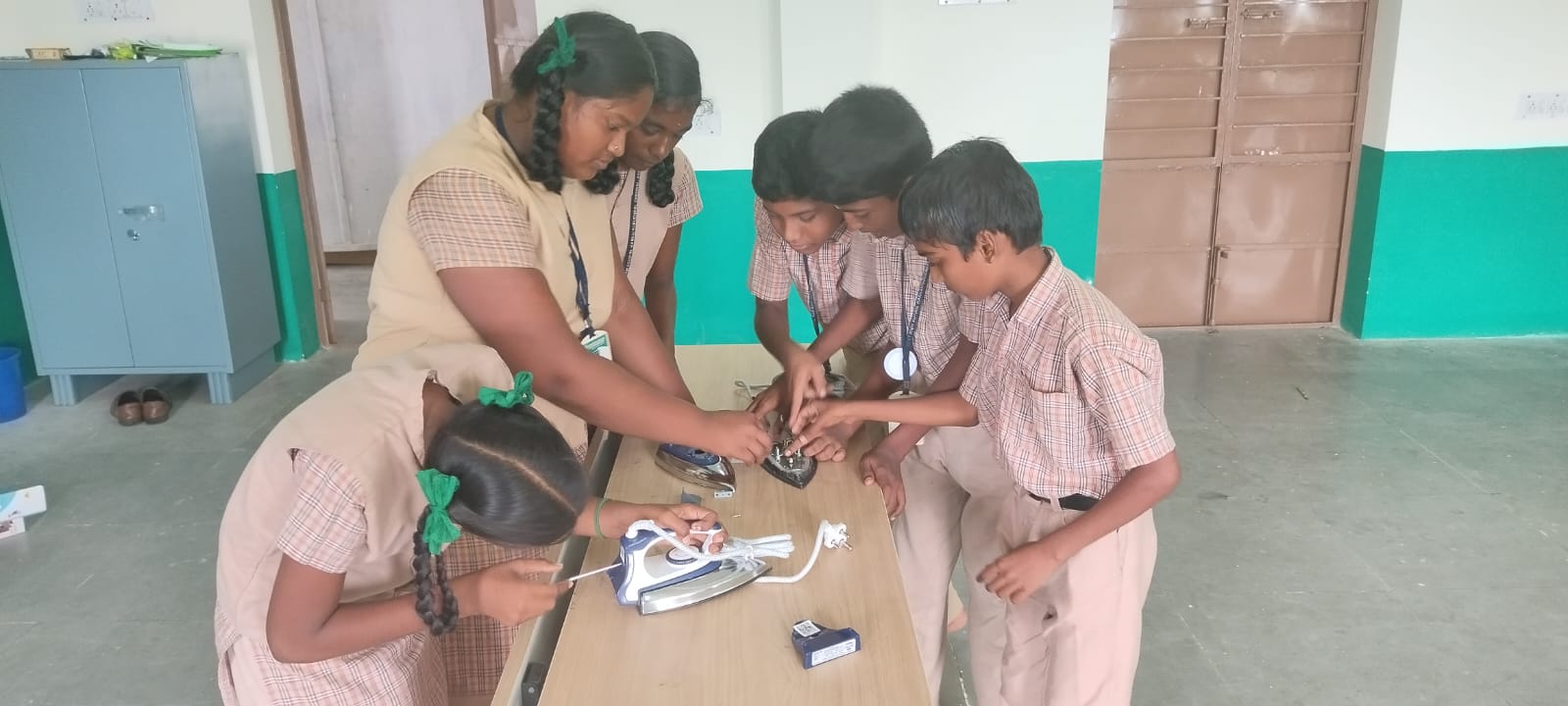
- ‘Device Engineering Lab’ (DEL) initiative connects IIT Madras students with the students of Rural Schools
- School Students learn how everyday devices ranging from Cycle Bell & Electric Iron to Geyser work and also how to make objects applying 3D-Printing technology
- The principle involved in these devices are School Syllabus Compliant & hence, helping students in their academics
- Currently, DEL labs are in 13 schools in Chengalpet, Thiruvallur, Kancheepuram & Krishnagiri, districts of Tamil Nadu, directly benefitting about 1,000 students & indirectly, more than 2,500 students
Indian Institute of Technology Madras (IIT Madras) Professors and Students are taking basic and advanced scientific and engineering concepts to rural schools of Tamil Nadu to provide hands-on learning of Scientific Concepts to the students, which will inculcate ‘Out-of-Box’ thinking.
Called ‘Device Engineering Lab’, initiated by ‘Teach to Learn’ (www.teachtolearn.co.in), it involves teaching school students the scientific concepts behind everyday devices and also applying 3D-Printing to make or fabricate toys and other household objects.
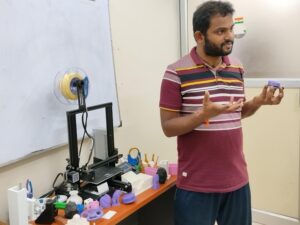
Designed as a platform for Capacity Building, the DEL initiative has a three-year curriculum that targets students of VIII, IX, and X or XI. A Lab hosts different inexpensive devices that are seen/used in their everyday life and most importantly, are based on principles involved in the School Syllabus. (Ex: Simple devices like Cycle Bells, Calling Bells, Electric Irons, and Motors to complex devices like Geysers, Microwave Ovens, 3D Printers, etc.)
By connecting IIT Madras students with students of Rural Schools, the objective is to imbibe a ‘Culture of Making’ at the school level and thus enhance design and fabrication skills. Another objective is to develop an entrepreneurial mindset as these classes could even provide possible livelihood options in the future.
COURSE COMPONENTS
The Two major training components of the Device Engineering Labs, which run parallel are Device Engineering Concept (Dismantle & Assembly, Working Principle, Science behind the device, ‘What if’, Extended Applications etc) and 3D Printing (Designing (CAD), Basic Programming, Printing, etc)
The training and the teaching provided to the students are completely experimental and hands-on in nature. Students will learn to print, applying primarily the FDM technique of 3D printing. They will print different device components, gears, wheels, and toys, among others. The complexity or the difficulty level of devices and printed objects increases as one goes from first to second and then to third year. Students of class XI will also learn to build a 3D printer from scratch; this can create a livelihood option for them in the future
IIT Madras is also looking to partner with other institutes, NGOs, and corporates to set up more such labs and take DEL to remote and rural areas, particularly to the northeastern states. Industries and philanthropists can support the scaling up of this project to benefit rural school students across India by contributing through the following link – https://joyofgiving.alumni.iitm.ac.in/projects/general-fund/device-engineering-labs-in-rural-government-schools
Highlighting the key benefits of this initiative, Project Lead Prof. Pijush Ghosh, Department of Applied Mechanics and Biomedical Engineering, IIT Madras, said, “We believe that culture of ‘Making in India’ should begin at the school level. IIT Madras is reaching out to rural schools to build this culture together. In the process of making or fabricating something, students understand the concepts and principles involved better and thus gain more confidence and find learning lot more interesting.”
Further, Prof. Pijush Ghosh, who is also the founder of ‘Teach to Learn’, added, “IIT Madras is thankful to Verizon India and Vertiv Energy Pvt. Ltd. for extending their generous support in setting up these labs through their CSR funding. IIT Madras is keen to establish DEL Lab in different parts of the country and we hope the Industry and Donors will support this initiative that can greatly enhance the scientific temper of the next generation of the country’s youth.”
As many as 200 postgraduate Students from 25 research labs prepared the content for about 30 devices for DEL Labs. They also built the teaching modules which include documentation and PowerPoint Presentations, among others, besides ‘Train the Trainer’ modules. As a part of this project, recently, 30 PG Students directly taught these device-related concepts to rural students.
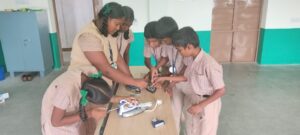
About 25 UG students worked on building device repositories as per the school syllabus while another 60 Prime Minister’s Research Fellows (PMRF) Scholars are currently working on making different hands-on models for explaining the concepts and 3D-printed objects. In the next 2-3 months, Graduate Students are likely to start visiting the schools during the weekends to teach those devices and 3D Printing.
Currently, DEL labs have already been established in 13 schools, mainly in Chengalpet, Thiruvallur, Kancheepuram, and one in Krishnagiri. Discussions are at the final stage for three more schools in the ISRO Sriharikota campus. This initiative is directly benefitting about 1,000 students and indirectly, more than 2,500 students. This number is going to increase significantly as more classes get involved
Apart from IIT Madras graduate students teaching, DEL has trainers appointed for it. The Recruited Trainers are provided rigorous training on different aspects of devices, teaching, and 3D printing at IIT Madras. They make different models to explain the concepts involved in a device or even in printing.
STUDENTS & TEACHERS FEEDBACK
Sharing his experience, Mr. B Srinath, a Student at Government High School (GHS) in Karanaipuducherry, Chengelpet District, said, “This is a great learning experience. For example, for a bell, an electromagnetic current will be applied to the bell. My teacher could teach this only theoretically. The mentor in the Device Engineering Lab taught us what happens in the electric bell. They opened the electric bell and taught us one-on-one. Then electricity goes. The electricity creates magnetism. The magnetism attracts the iron and they will create a sound. So this way, I learned how an electric bell works.”
Mr. Sanath Kumar, Founder of Cambridge Public e-School, Krishnagiri, said, “Cambridge Public e-School is very fortunate and proud of the initiation of the Device Engineering Lab, a one-of-its-kind initiative of IIT Madras in school campuses. It trains the students with hands-on experience and theoretical knowledge that induces them to create and co-create new devices in the Lab. This initiative in the longer run prepares the students to become young entrepreneurs.”
Ms. PR Suryakala, Headmistress, GHS Karanaipuducherry, Chengelpet District, said, “DEL gives Hands-on experience. Students always hear the words ‘Do not touch’ and ‘Do not break’’ but here, they could open the instrument to learn how they work. It is a great opportunity for the students in Government schools. This gives them ideas for starting their own business in the future.”
Campaign | KRC Foundation


